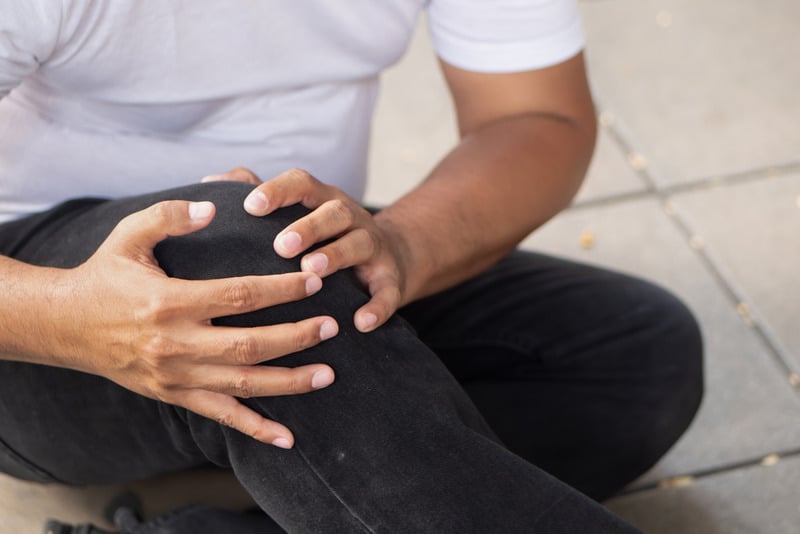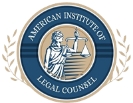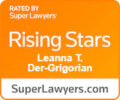Slip And Fall Injury In Los Angeles: It can be difficult to prove or determine who is at fault—or who bears liability—in slip and fall incidents. Every year, thousands of individuals are injured, many of them badly, due to slipping and falling on a slippery or hazardous floor, stairwell, or other surfaces. Even if the terrain has become dangerously uneven, serious injuries can occur. However, proving that the property owner is accountable for a slip and fall accident can be challenging at times. That is why the Workers’ Compensation Attorney in Los Angeles is here to help you prove a slip and fall faulty accident.
Slip And Fall Injury In Los Angeles: Could A Property Owner Prevent An Accident?
When you or your beloved has been harmed in a slip and fall accident, it may be enticing to seek justice as quickly as possible through a lawsuit. But first, before that, take time to consider the following: Is it possible that the slip and fall accident might have been prevented?
For instance, even if a leaky roof causes a slippery condition in which you slip and fall, the property owner might not be liable for your injuries if there was a drainage grate in the floor designed to reduce slippery conditions. Furthermore, property owners are not necessarily liable for things that a reasonable person would avoid, such as stumbling over something that would typically be present in that area (similar to a leaf rake on a fall lawn). Everyone has a responsibility to be aware of their surroundings and to take precautions to prevent dangerous situations.
Moreover, property owners are responsible for ensuring the safety of slides, trampolines, swimming pools, and other “attractive nuisances.” Swimming pools, for example, must be appropriately covered and surrounded by a fence to prevent children from utilizing them while they are unsupervised.
The Duty Of Property Owner: Keep Area Reasonably Free From Dangerous Conditions
This is not to say that property owners are never held liable for the injuries sustained by people who slip and fall on their premises. Although this is not a hard and fast rule, property owners must nevertheless make reasonable efforts to ensure that their premises are away from dangerous conditions that might cause a person to slip and fall. However, this reasonableness is frequently evaluated against the care that the individual who slipped and fell should have exercised in the first place. The standards that courts and insurance companies use to determine fault in slip and fall incidents are as follows.
Slip and Fall Accidents Liability
If you were injured or harmed in a slip and fall mishap on someone else’s property due to a dangerous situation, you would almost certainly need to be able to demonstrate one of the following to win a lawsuit for your slip and fall injuries:
- The property owner or his employee staff should have been aware of the unsafe condition since another “reasonable” person in their position would have been aware of it and fixed it.
- The property owner or his employee was aware of the hazardous condition but chose not to repair or rectify it.
- The unsafe situation was produced by either the property owner or one of his employees (broken flooring, spills, and other unsafe situations).
Because many property owners are generally very excellent at keeping their facilities in good condition, the first circumstance is usually the one that is disputed in slip and fall incidents. However, because of the terms “should have known,” the first circumstance is also the trickiest to establish. After you’ve presented your facts and arguments, the jury or judge will determine whether the property owner should have been aware of the slip step that caused you to fall.
If you have a valid negligence claim for a slip and fall accident, you should determine the sorts of damages for which your case will seek compensation, such as medical expenses, lost earnings, suffering, and pain.
Reasonableness Of Action
When attempting to prove that a property owner is accountable for the injuries you incurred in your slip and fall accident, you will almost certainly have to demonstrate the reasonableness of the property owner’s actions at some point. Before beginning a case, you and your attorney should consider the following issues:
- How long had the flaw existed prior to your accident? In other words, if the leaky roof above the stairwell had been leaking for three months, it was less acceptable for the property owner to allow the leak to persist than if the leak had just started before the night and the owner was waiting for the rain to cease in order to repair it.
- What types of cleaning tasks does the property owner perform on a daily basis? What type of documentation can the property owner offer to back up their claim that they inspect the property on a daily basis?
- Was there a useful purpose for that object to be there if your slip and fall mishap involved tripping over anything that was left on the floor or in another area where you stumbled on it?
- If your slip and fall accident involved slipping or tripping over something left on the floor that formerly had a legitimate reason for being there, was that legitimate reason still present at the time of your accident? One example, tripping over a can of paint in a living room, is probably not rational if the space was last painted over two years ago and the owner has no urgent intentions of repainting the area.
The Negligence, Clumsiness, And Carelessness
When it comes to slip and fall incidents, most jurisdictions adopt comparative negligence, which provides a defense to negligence accusations. This implies that if you contributed to your accident in any manner (for example, by chatting on your mobile phone and failing to notice a warning sign), your reward for slip and fall injuries and other losses may be reduced by the amount you were comparatively at blame (a jury or judge decides on this proportion).
There are several questions you may ask yourself to assess how probable it is that you’ll be found to be relatively negligent, similar to studying the property owner’s liability:
- Did you have a reasonable cause to be on the property owner’s premises at the time of the accident? Should the owner have expected you or someone in a similar circumstance to show up?
- Would a reasonable person in the same scenario have detected and avoided the risky condition or managed the condition in a way that reduced the possibilities of slipping and falling (for example, hanging onto the handrail while descending slippery stairs)?
- Did the property owner put up a barrier or warn you about the unsafe situation that caused your slip and fall?
- Were you doing anything that contributed to your slip and fall accident? Some examples are texting while walking, running around the borders of pools, leaping or skipping, attempting to skate while wearing work shoes, and other unsafe circumstances.
If you’ve been negotiating with an insurance company about a possible settlement for your slip and fall injuries, you’ve undoubtedly been asked many questions like these. Although you will not have to prove to the insurance company that you were exceedingly cautious, you will most likely have to show enough that the insurance company concludes that you did not behave irresponsibly yourself.
Got Slip and Fall Accident Questions? An ODG Law Group Attorney Can Help You
If you’ve been injured in a slip-and-fall accident, you should speak with an attorney as quickly as possible. It would be best to move promptly since statutes of limitations limit the amount of time a person has to file a slip and fall injury claim. If you believe you have a slip and injury claim, you should contact an expert slip and fall attorney in Los Angeles as soon as possible. For a free case evaluation, please visit our website or contact the ODG Law Group hotline at (818) 975-3080.




